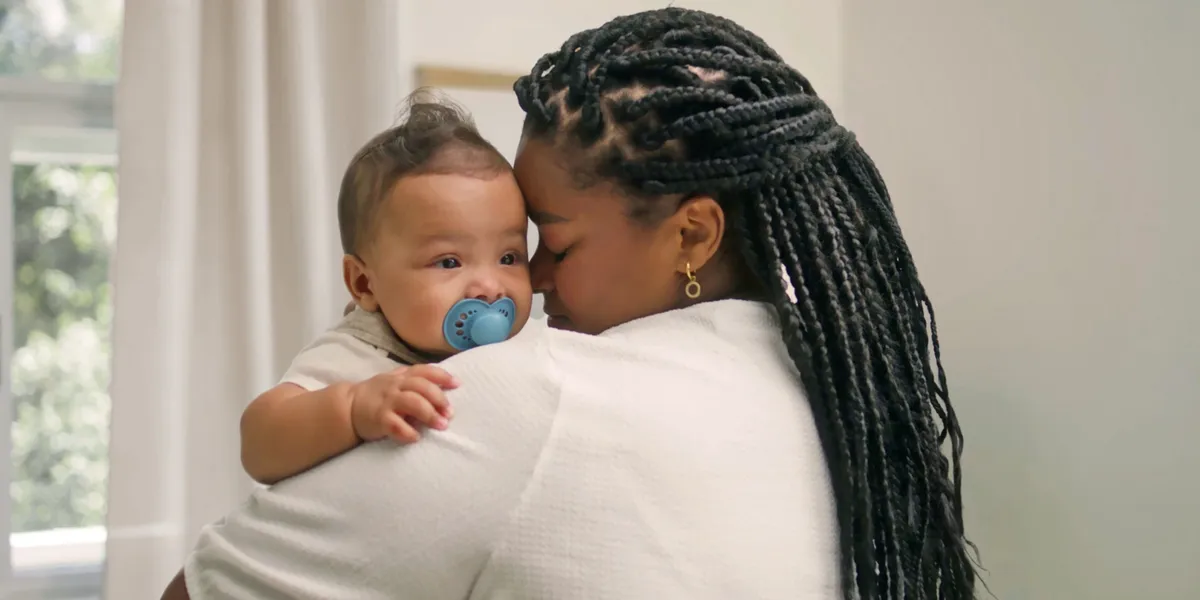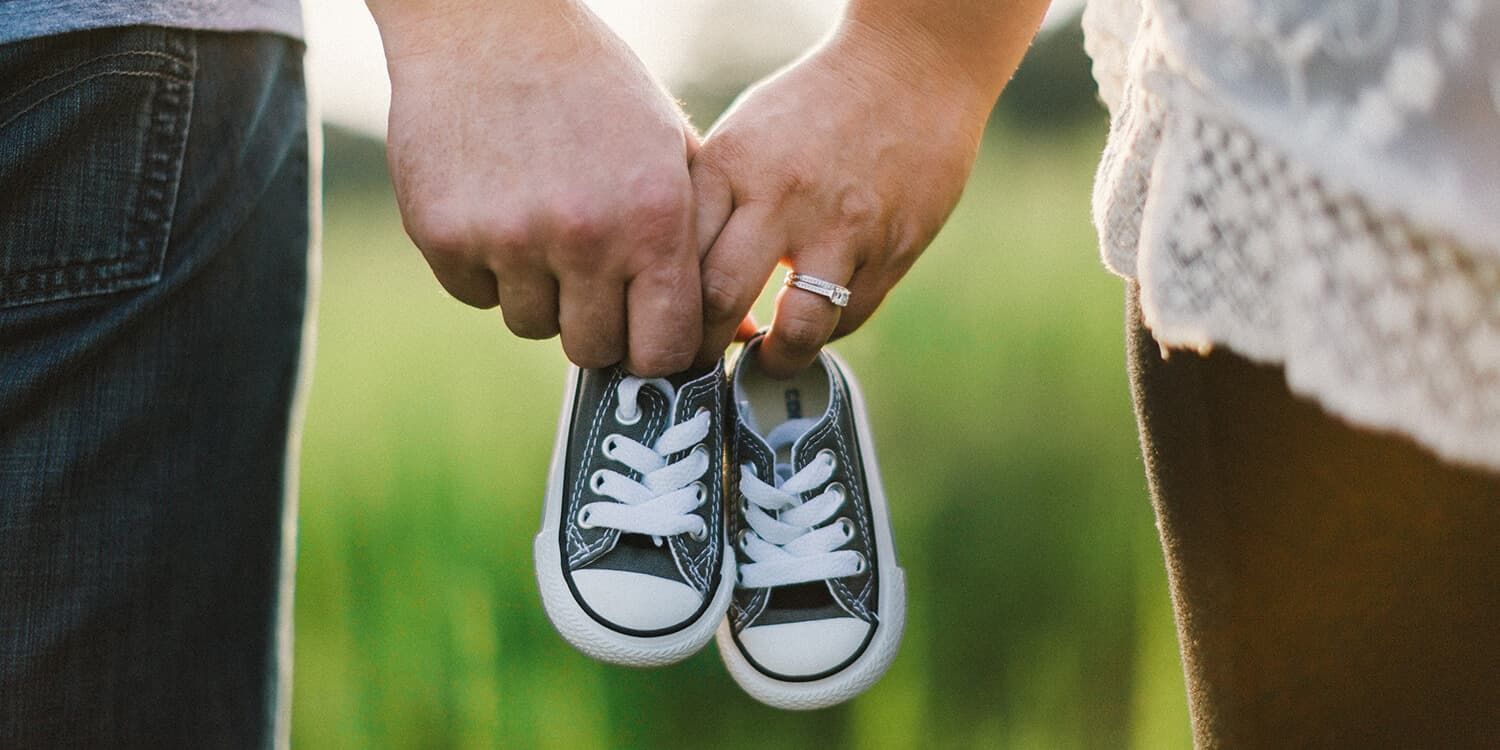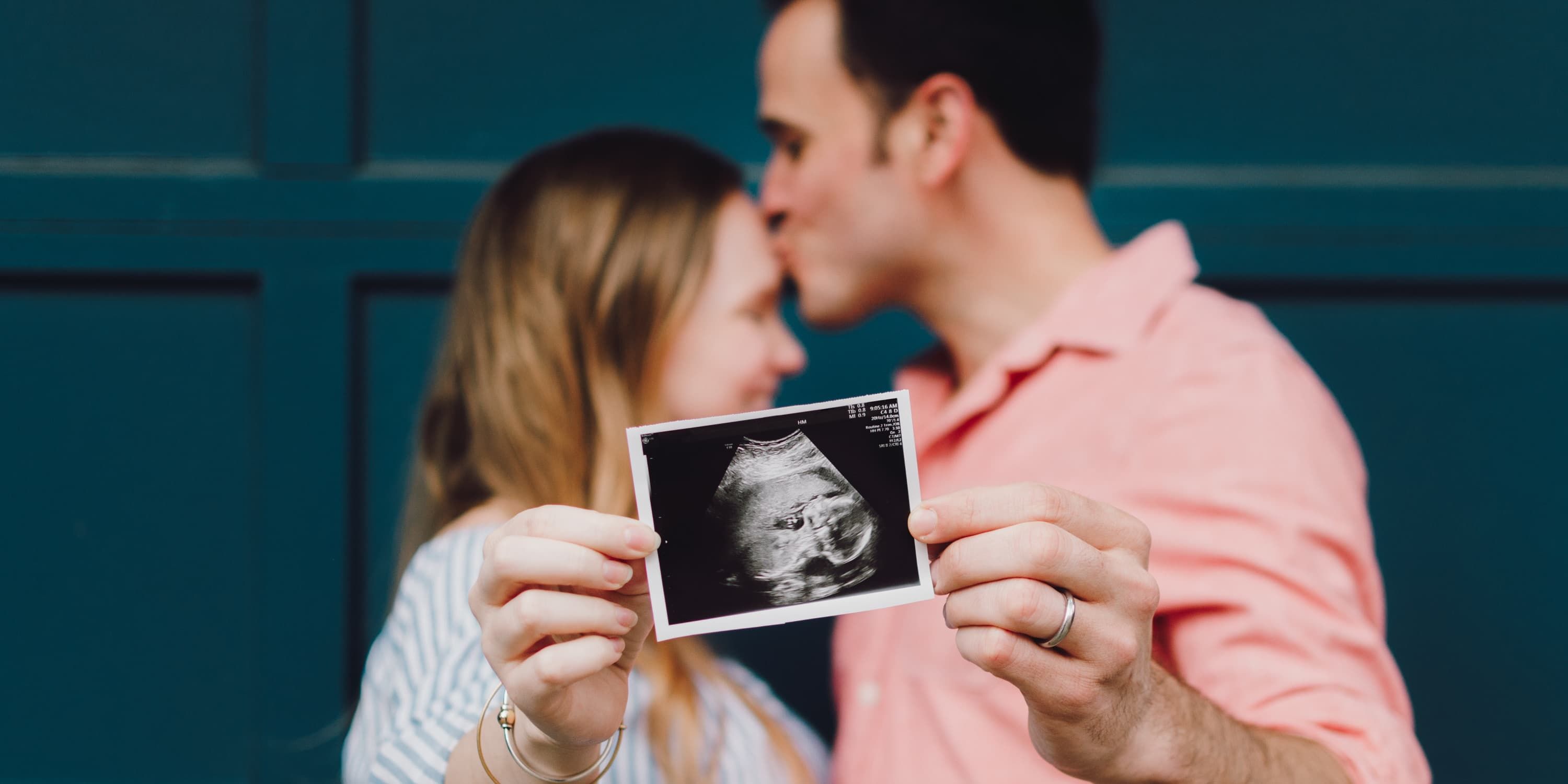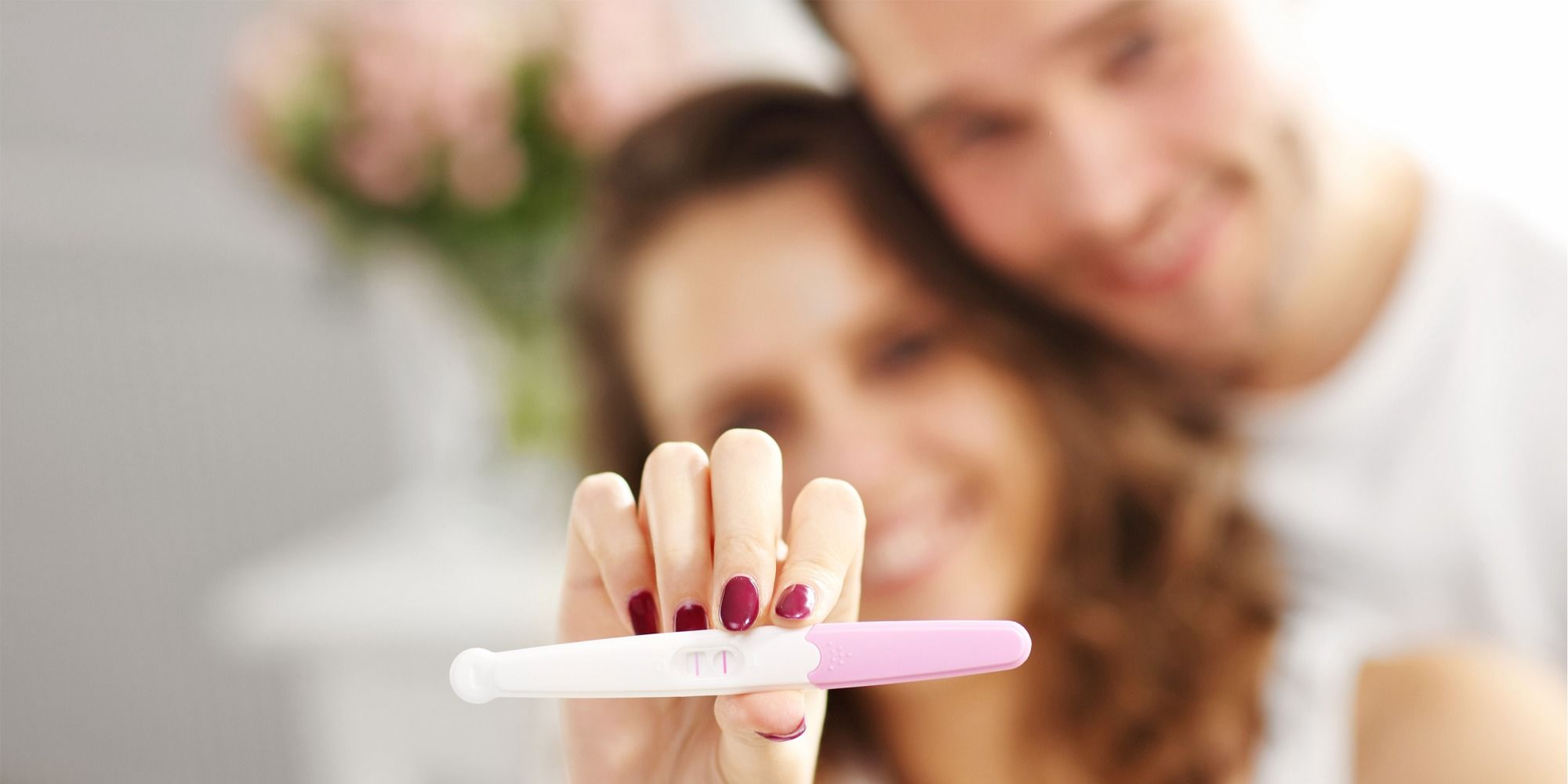The more the organs develop, the more "functions" and capabilities are added. In the 12th week of pregnancy, these include yawning and hiccuping. Read on to discover what the grand finale of the first trimester has in store for you!
What's going on inside you at 12 weeks pregnant?
On the ultrasound, your precious little one is looking more and more like a sweet baby. The body has straightened up a little more and the limbs have had a growth spurt.
The eyes have migrated more to the middle of the face and the ears have moved up a little. We can also see the nose quite clearly and the ear muscles are growing. The inner and middle ear are already complete.
Your baby is now roughly the size of a plum.
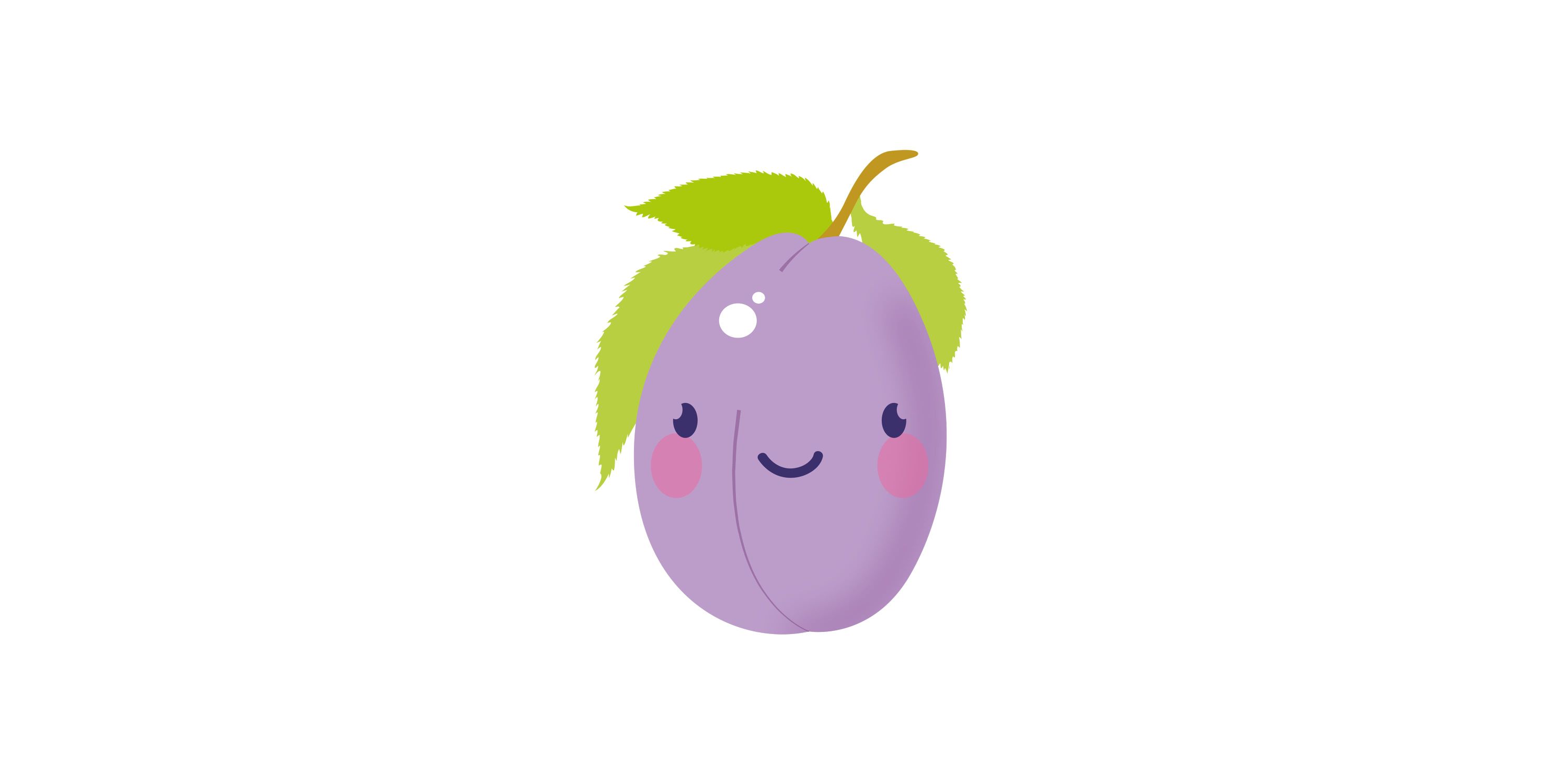
The foetus moves around a lot – that will slowly get better. The arms, for example, have developed to such an extent that your baby can make fists and the elbows and wrists bend. Even if you still cannot feel it, your baby is starting to respond reflexively to touch. If someone presses on your stomach, your baby may pull back. Contact with the mouth causes the lips to purse, just as they will for sucking and feeding after birth.
The mouth also opens and closes because the foetus drinks the amniotic fluid as practice. The swallowing movements can even be seen on the ultrasound. Your baby will also yawn occasionally and has hiccups from time to time because the diaphragm has developed far enough to allow this.
The skeleton is changing too. Calcium is being stored, so the cartilage is starting to turn into bone. However, this hardening of the bones continues long after the birth. Until puberty, in fact!
The tooth buds of the 20 milk teeth can also now be seen. There are also new things going on in the way nutrients are supplied: the placenta has taken over completely.
The foetus is 43-51 mm long and weighs around 14 grams.
How do you feel at 12 weeks pregnant?
The most critical phase is over. At last you can let the whole world know you are pregnant! Of course, the risk of a miscarriage or complication cannot be excluded until the end of the pregnancy, but it is now very unlikely.
Many expectant mothers really look forward to the baby bump. But although the uterus now protrudes a little over the pubic bone, there is still not much to see. If it is your second pregnancy, there may be a mini-bump showing, but in most women, it will still take a while. Mums-to-be are more likely to see their breasts grow around the 12th week. Special maternity bras can help to reduce the discomfort caused by pressure, but still hold the tissues firmly and so reduce the risks of stretch marks.
Often, at this stage, various antenatal screening methods are offered, i.e. tests to identify genetic defects or malformations. If you feel you want these screening tests, discuss the options with your midwife or doctor.
If you experience heavy vaginal discharge, this may be caused by the changed hormone balance, which serves to improve the blood flow to the vagina. The increased secretions protect the vagina against infection. Healthy vaginal fluid is largely odour-free and colourless. This is not the case with bacterial infections. You should ideally contact your midwife or doctor if you are uncertain or if the discharge has a noticeable odour.
Light bleeding can occur after sex, for example. If you have pain or cramps and/or the bleeding is heavy, contact your midwife or doctor immediately or go straight to hospital.
But for most mums-to-be, the good times are just around the corner – you are almost in the second trimester!
Sources:
Your Pregnancy Week by Week, Prof. Lesley Regan, DK Limited, London, 2019, pp. 107 ff
Photo: Unsplash




















